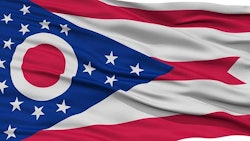Hemp businesses will have access to the U.S. federal government’s new small business loan packages, the Paycheck Protection Program and the Economic Injury Disaster Loan Program. Each loan structure offers different things at different rates. Check out our guide to the new federal stimulus funding here.
But eligibility is one thing. Along the way, hemp business owners would do well to keep in mind the learning curve that their industry presents. Hemp (and all of its attendant supply chain links and chemical compounds) is a new crop in the eyes of the law. Regulated banks and even commercial lenders, no doubt, will be extra cautious in working with the industry.
“The industry will need to educate many of these lenders, many of these bankers,” said Scott Moskol, partner and co-chair of the Cannabis Business & Law Advisory group at Burns Levinson, which ran a webinar on this topic with the team at Vicente Sederberg April 3. (Watch the full webinar below.)
Hemp growers will need to explain in detail what their particular license type allows them to do. Even terms like “isolate” and “biomass” may need to be spelled out.
The same hurdle that law enforcement agencies are jumping is in play here, too: Hemp and state-licensed cannabis plants (“marijuana,” in some terminology) are both Cannabis sativa L., a Schedule-I substance. Hemp, of course, becomes hemp when the plant’s THC content hits 0.3% or lower. This may seem like the sort of elementary facts that each grower must know before they decide to get into the space, but bankers and lenders may not be as familiar.
When maintaining your records, be as clear as possible.
“Teach your lenders along the way,” Moskol said.
The same is true—and doubly so—for the business-to-consumer side of the emergent hemp industry. CBD retailers may have a harder time picking up federal loan assistance, even in these trying times. While the U.S. Food and Drug Administration continues to prolong its regulatory debate over the cannabinoid, bankers and lenders will only grow more hesitant to support business that fall into this gray area.

























